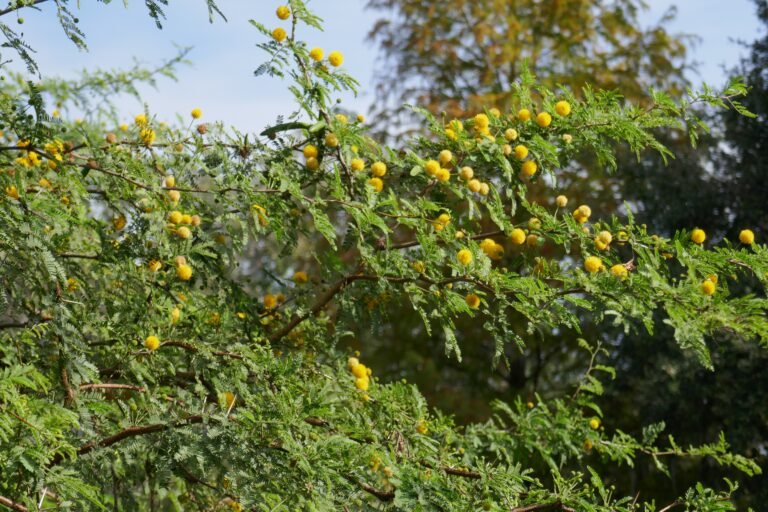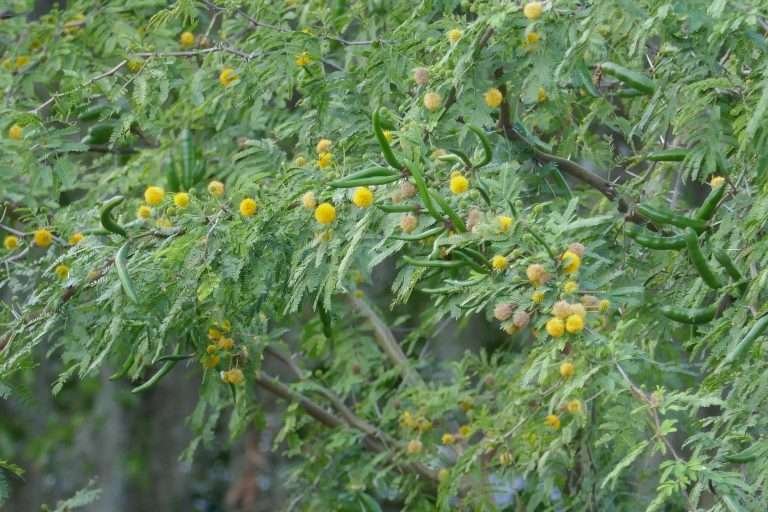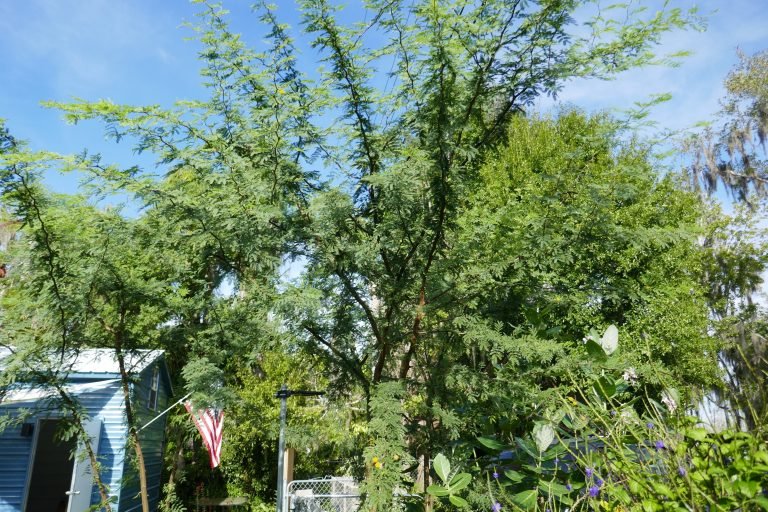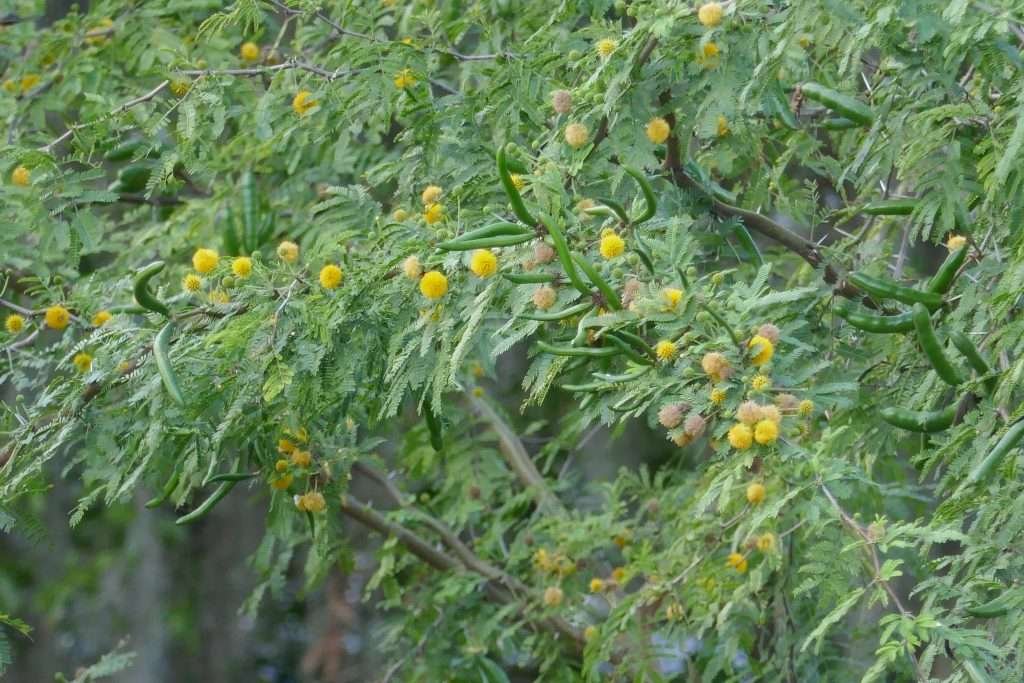
Vachellia farnesiana var farnesiana
(Sweet Acacia)

Common Names, Latin Name and Family
Huisache, Texas Huisache, Sweet Acacia, Perfume Acacia, Mealy Acacia, Mealy Wattle, and Cassie.
Its Latin name is Vachellia farnesiana var farnesiana.
It is in the Fabaceae, or pea, family.
Form
A thorny, evergreen, shrub that grows to a height of 8 – 15 feet, and just about as wide.
Leaves
Leaves are alternate and bipinnate. Leaflets are less than 1 cm in length and are in pairs of 10 – 25.

Flowers
Sweet acacia produces many bright yellow globe shaped flowers that are approximately 1-2 cm in diameter. The small yellow orbs appear most of the year. The flowers are fragrant and appear all year in Florida.

Fruit
Sweet acacia produces large, thick, bean pods that are green when immature and brown once they mature.

Habitat
Sweet acacia occurs naturally in coastal forests, shell middens, pinelands, and disturbed sites
Native Range
It is native to AL, AZ, CA, FL, GA, LA, MS, NM, and TX.
In Florida it is found in some counties in the northern part of the state but mostly found in the southern portion of Florida.
Landscape Use
Sweet acacia can be grown in the home landscape in dry soils in full sun. If the area is moist it must be well drained so as not cause root rot. It is very drought tolerant and once established and requires little, if any, maintenance. It is salt tolerant, and can tolerate temperatures down to 20 degrees.
Placement needs to be carefully considered because of the thorns, and the fact that acacia can become clonal and form a dense thicket.
It grows in zones 9 to 11.

Wildlife Use
The fragrant flowers attract a number of pollinators, but mostly bees and wasps.
The butterflies that visit are generally the smaller species such as hairstreaks and skippers, but I have seen gulf fritillaries use them.
Songbirds forage among the branches for insects.
Deer eat the seed pods, and game birds such as quail and doves eat the seeds once the pods open and fall to the ground.
Propagation
Can be grown easily from seed and transplanted when small. Some may have luck with rooting cuttings.
Sweet Acacia Seeds (Vachellia farnesiana var farnesiana) ✤ 50 Seeds.
